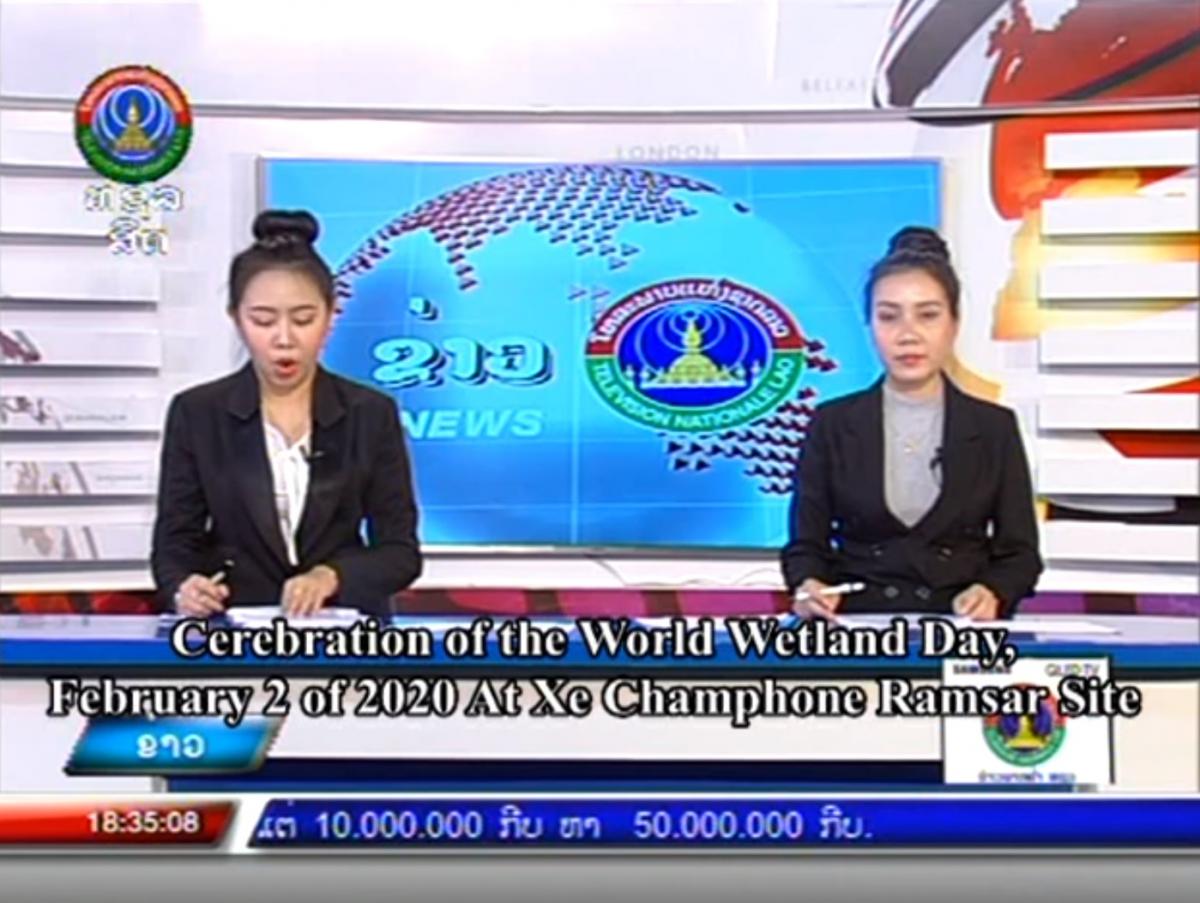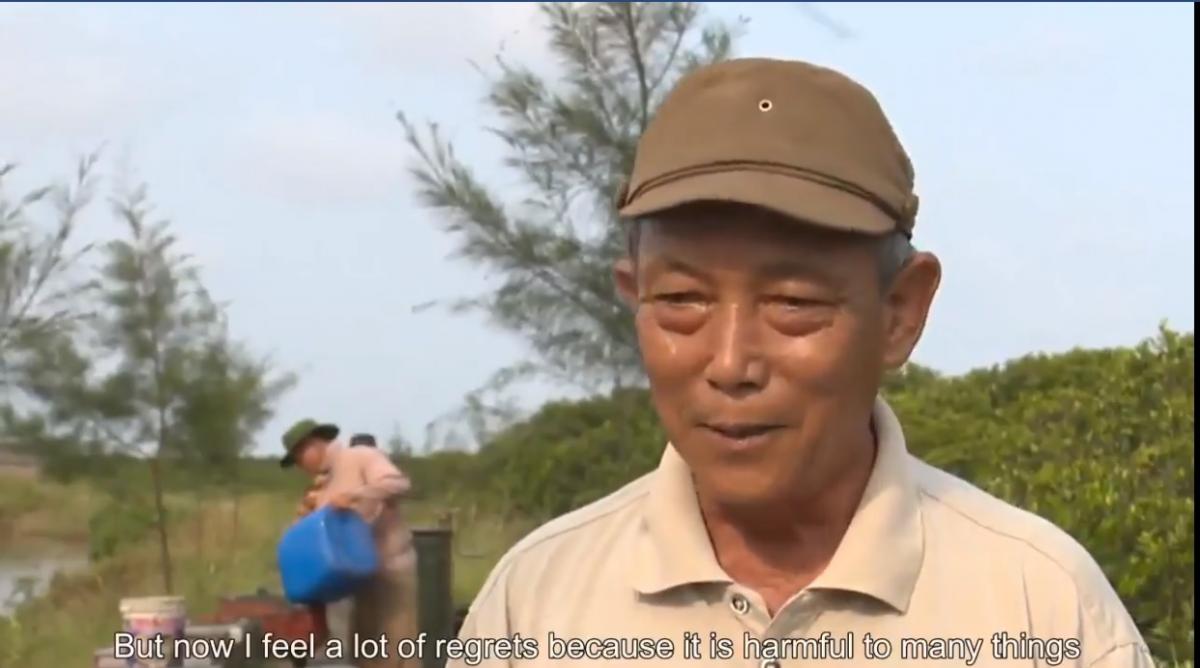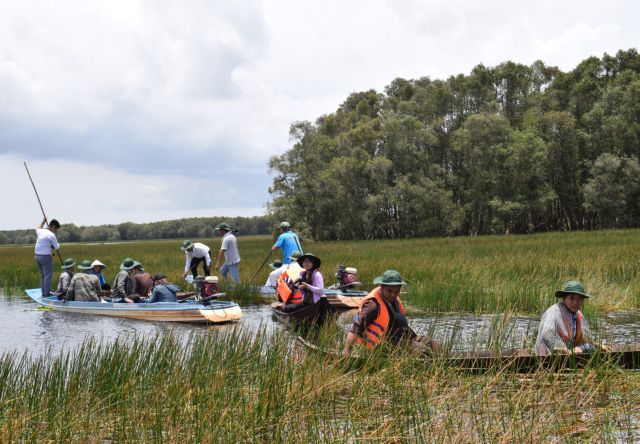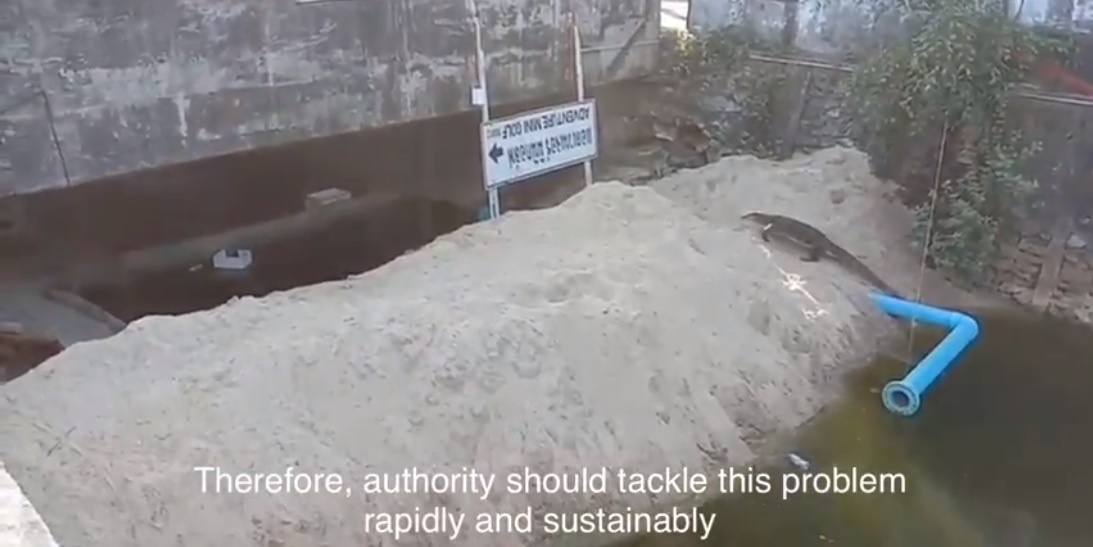Citizen journalism reports highlight the importance of wetlands in climate change adaptation
Using only their mobile phones, citizens in wetland communities in Cambodia, Lao PDR, Thailand, and Viet Nam have documented the role of wetlands in climate change adaptation and mitigation. These citizen journalism reports have been aired by six national media agencies in the Indo-Burma region and were showcased on national television, newspapers, and social media platforms. Citizen Journalism is a component of IUCN’s Mekong WET project, which aims to build the resilience of wetlands in the region through Ecosystem-based Adaptation.
Citizen journalists worked with national media partners to develop 70 reports on the local benefits of conserving wetlands for livelihoods and biodiversity and the global role of wetlands in mitigating climate change. Reports have covered a wide range of topics, from TV reports on World Wetlands Day Celebrations in Lao PDR to newspaper articles discussing ecotourism development in the Vietnamese Mekong Delta. The reports have reached various audiences throughout the countries, raising awareness of the impacts of climate change and the importance of wetlands in buffering against flooding, drought, erosion, and increased storm severity.
News reports from the citizen journalists also highlight innovative ways to engage community members in wetland protection, benefitting both local livelihoods and the environment. A report from Xuan Thuy National Park, aired on Viet Nam Television, discusses a mangrove protection arrangement, where the national park leases a section of mangroves to Mr. Tran Huy Khanh, a beekeeper, whose bees depend on mangrove flowers for honey production.
“Before I also destroyed forests, but now I feel a lot of regrets because it is harmful to many things. Without mangrove forests, the storms greatly affect everyone through the loss of seafood, and loss of flowers for bees. Every year we harvest at least five or six tonnes of honey, if we multiply it with the cheapest price here, which is about 60,000 VND/kg, the proceeds are huge. In comparison to the ordinary income of a farmer, this is very good”, said Mr. Tran Huy Khanh. His report demonstrates an understanding of the importance of mangrove forests, and their role in protecting coastal communities from increased storm strength due to climate change.
Some citizens also used the platform to bring attention to issues that are affecting local people. Mr. Danai Yadee, a citizen journalist trained during the workshop in southern Thailand with Thai PBS, used his mobile phone to document a case of coastal mismanagement in Bang Tao Beach, Phuket. In his report, he shows an ineffective wastewater treatment pond that has led to the closing of a canal, which was previously utilised by fishermen and tourist boats.
The Mekong WET project has conducted several citizen journalism trainings in Cambodia, Lao PDR and Viet Nam to raise awareness of climate change impacts and the importance of conserving wetlands. The citizen journalism platform has also amplified the voices of wetland communities, allowing them to share the benefits derived from wetland and discuss various conservation challenges with those who live in different areas of the country.
______________
About Mekong WET
Funded by the International Climate Initiative (IKI) of the German Federal Ministry for the Environment, Nature Conservation, Building and Nuclear Safety (BMUB), and to be implemented until 2020, the “Mekong WET: Building Resilience of Wetlands in the Lower Mekong Region” project aims to build climate resilience by harnessing the benefits of wetlands in Cambodia, Lao PDR, Thailand, and Viet Nam. Mekong WET will help these countries to address their commitments to the Ramsar Convention, an international treaty for the conservation and sustainable use of wetlands, and to achieve the Aichi Biodiversity Targets. The project is also supporting the IBRRI and the implementation of the IBRRI strategic plan 2019-2024.




